A UK network’s readiness to televise Jade Goody’s slow death from cancer has sparked a debate. DNA reports.
Jade Goody is going to die on TV. The reality TV veteran, who became a celebrity in the UK after two stints on Big Brother — and a familiar name in India for her racist run-ins with actor Shilpa Shetty on the same show — has struck a deal with the Virgin Media-owned Living TV to document her last days.
Goody has been diagnosed with cervical cancer and has only a few weeks to live. She will allow cameras to shoot her during treatment, at home when she spends time with her sons, and through photo-op moments engineered by her, like a wedding earlier this week to boyfriend Jack Tweed.
Some might say that for a star ‘born’ on reality TV, this is a logical ending, as it were. But people are outraged that a TV channel would agree to televise her death. With reality shows pushing the envelope to rake in the TRPs, many are now also being slammed on ethical grounds.
Shows like Kid Nation and Intervention have raised questions about over-the-top content, children in peril, and social experimentation in a public forum.
Depending on which side of the debate you are ranged, Goody’s death is either a new high or a new low for reality TV. In India, a major concern is that it will spawn spin-offs. “We are living in a copy cat world,” says PN Vasanti, director of the Delhi-based Centre for Media Studies.
“If a show does well abroad, or is controversial, we are sure to replicate it here. I won’t be surprised if someone tries to dramatise something similar to Goody’s death.” There’s also a chance this will encourage people to pull similar stunts, says psychologist Seema Hingorrany. “The need to see ourselves on TV is so great, we will to do anything,” she adds. “Next we’ll have people committing suicide on prime time, especially people with low self-esteem.”
According to Deepak Dhar, managing director at Endemol (India), Indian audiences have a long way to go before they accept watching someone die on TV. “We’re still a little conservative,” he says. “We would reject this idea. ”
Yet research shows India wants more ‘edgy’ content, though what that is, isn’t clear. Ashish Patil, senior vice president at MTV says: “Surveys show kids today want ‘unlicensed thrills’.
Delhi youngsters want to break a traffic light while the cops are watching, and Bangalore kids want to dare their friends to spend a night in the graveyard. Girls everywhere want to see a life they cannot lead, which is manifest in cyberdating, fake profiles and talking dirty on the net. They are looking for an emotional pay-off that doesn’t come from saas-bahu serials.”
There’s not much to stop broadcasters from going overboard, should they intend to. The Information and Broadcasting (I&B) Ministry’s guidelines — there’s nothing separate for reality shows, even though they make up an estimated 30 per cent of all content — bars the standard things: Violence, obscenity, smoking, alcohol, drugs, libel and such. “There is nothing to stop reality shows from going too far,” says a former official. “And networks could inevitably find a way around rules.” (The I&B Ministry declined to comment.)
Says Vasanti: “If Kid Nation and the Goody series made it past the strict rules set down by regulators like the Federal Communications Commission in the US and Ofcom in the UK, it will be no problem for us in India.”
Broadcasters say they will never ‘pull a Jade’. Says Dhar of Endemol: “As a broadcaster I don’t think we will ever do disturbing content.” According to Rohit Bhandari, senior vice president at AXN, “Reality shows work because they are a vicarious way of living for watchers. But while the spectrum of what constitutes entertainment is vast, I don’t think it includes watching someone die. That’s just not entertainment.”
There is, however, a smart way to leverage something unpleasant into something useful. UK doctors have reported an increase in the number of people coming for cancer tests. And Goody isn’t the first to die on TV.
In 1994, Pedro Zamora, a contestant on MTV’s The Real World, admitted on camera that he had AIDS. He died mid-show, but the media buzz around this helped break some taboos around HIV.
In 2000, actor Tom Green, host of The Tom Green Show in the US, revealed he had testicular cancer — and went on to turn his scary and embarrassing condition into a big network joke. Later, the money raised through advertising was invested in a cancer hospital.
Goody’s bucks from her show will go into a trust for her sons. But stories like hers could also have a more philanthropic ending.
![submenu-img]() Viral video: Kind man assists duck family in crossing the road, internet lauds him
Viral video: Kind man assists duck family in crossing the road, internet lauds him![submenu-img]() Can you see the Great Wall of China from space? here's the truth
Can you see the Great Wall of China from space? here's the truth![submenu-img]() Ashutosh Rana breaks silence on his deepfake video supporting a political party: 'I would only be answerable to...'
Ashutosh Rana breaks silence on his deepfake video supporting a political party: 'I would only be answerable to...'![submenu-img]() Meet India's most talented superstar, is actor, dancer, stuntman, singer, lyricist; not Ranbir, Shah Rukh, Aamir, Salman
Meet India's most talented superstar, is actor, dancer, stuntman, singer, lyricist; not Ranbir, Shah Rukh, Aamir, Salman![submenu-img]() This flop film was headlined by star kid, marked south actress's Bollywood debut, made in Rs 120 crore, earned just...
This flop film was headlined by star kid, marked south actress's Bollywood debut, made in Rs 120 crore, earned just...![submenu-img]() DNA Verified: Is CAA an anti-Muslim law? Centre terms news report as 'misleading'
DNA Verified: Is CAA an anti-Muslim law? Centre terms news report as 'misleading'![submenu-img]() DNA Verified: Lok Sabha Elections 2024 to be held on April 19? Know truth behind viral message
DNA Verified: Lok Sabha Elections 2024 to be held on April 19? Know truth behind viral message![submenu-img]() DNA Verified: Modi govt giving students free laptops under 'One Student One Laptop' scheme? Know truth here
DNA Verified: Modi govt giving students free laptops under 'One Student One Laptop' scheme? Know truth here![submenu-img]() DNA Verified: Shah Rukh Khan denies reports of his role in release of India's naval officers from Qatar
DNA Verified: Shah Rukh Khan denies reports of his role in release of India's naval officers from Qatar![submenu-img]() DNA Verified: Is govt providing Rs 1.6 lakh benefit to girls under PM Ladli Laxmi Yojana? Know truth
DNA Verified: Is govt providing Rs 1.6 lakh benefit to girls under PM Ladli Laxmi Yojana? Know truth![submenu-img]() Aamir Khan, Naseeruddin Shah, Sonali Bendre celebrate 25 years of Sarfarosh, attend film's special screening
Aamir Khan, Naseeruddin Shah, Sonali Bendre celebrate 25 years of Sarfarosh, attend film's special screening![submenu-img]() Alia Bhatt wears elegant saree made by 163 people over 1965 hours to Met Gala 2024, fans call her ‘princess Jasmine’
Alia Bhatt wears elegant saree made by 163 people over 1965 hours to Met Gala 2024, fans call her ‘princess Jasmine’![submenu-img]() Jr NTR-Lakshmi Pranathi's 13th wedding anniversary: Here's how strangers became soulmates
Jr NTR-Lakshmi Pranathi's 13th wedding anniversary: Here's how strangers became soulmates![submenu-img]() Streaming This Week: Heeramandi, Shaitaan, Manjummel Boys, latest OTT releases to binge-watch
Streaming This Week: Heeramandi, Shaitaan, Manjummel Boys, latest OTT releases to binge-watch![submenu-img]() Remember Ayesha Kapur? Michelle from Black, here's how actress, nutrition coach, entrepreneur looks after 19 years
Remember Ayesha Kapur? Michelle from Black, here's how actress, nutrition coach, entrepreneur looks after 19 years![submenu-img]() Haryana Political Crisis: Will 3 independent MLAs support withdrawal impact the present Nayab Saini led-BJP government?
Haryana Political Crisis: Will 3 independent MLAs support withdrawal impact the present Nayab Saini led-BJP government?![submenu-img]() DNA Explainer: Why Harvey Weinstein's rape conviction was overturned, will beleaguered Hollywood mogul get out of jail?
DNA Explainer: Why Harvey Weinstein's rape conviction was overturned, will beleaguered Hollywood mogul get out of jail?![submenu-img]() What is inheritance tax?
What is inheritance tax?![submenu-img]() DNA Explainer: What is cloud seeding which is blamed for wreaking havoc in Dubai?
DNA Explainer: What is cloud seeding which is blamed for wreaking havoc in Dubai?![submenu-img]() DNA Explainer: What is Israel's Arrow-3 defence system used to intercept Iran's missile attack?
DNA Explainer: What is Israel's Arrow-3 defence system used to intercept Iran's missile attack?![submenu-img]() Ashutosh Rana breaks silence on his deepfake video supporting a political party: 'I would only be answerable to...'
Ashutosh Rana breaks silence on his deepfake video supporting a political party: 'I would only be answerable to...'![submenu-img]() Meet India's most talented superstar, is actor, dancer, stuntman, singer, lyricist; not Ranbir, Shah Rukh, Aamir, Salman
Meet India's most talented superstar, is actor, dancer, stuntman, singer, lyricist; not Ranbir, Shah Rukh, Aamir, Salman![submenu-img]() This flop film was headlined by star kid, marked south actress's Bollywood debut, made in Rs 120 crore, earned just...
This flop film was headlined by star kid, marked south actress's Bollywood debut, made in Rs 120 crore, earned just...![submenu-img]() India's most successful star kid was superstar at 14, daughter of tawaif, affair with married star broke her, died at...
India's most successful star kid was superstar at 14, daughter of tawaif, affair with married star broke her, died at...![submenu-img]() India's biggest flop actor, worked with superstars, married girl half his age, once left Aamir's film midway due to..
India's biggest flop actor, worked with superstars, married girl half his age, once left Aamir's film midway due to..![submenu-img]() England pace legend James Anderson set to retire from Test cricket after talks with Brendon McCullum
England pace legend James Anderson set to retire from Test cricket after talks with Brendon McCullum![submenu-img]() IPL 2024: Shubman Gill, Sai Sudharsan centuries guide Gujarat Titans to 35-run win over Chennai Super Kings
IPL 2024: Shubman Gill, Sai Sudharsan centuries guide Gujarat Titans to 35-run win over Chennai Super Kings![submenu-img]() KKR vs MI IPL 2024: Predicted playing XI, live streaming details, weather and pitch report
KKR vs MI IPL 2024: Predicted playing XI, live streaming details, weather and pitch report![submenu-img]() 'It's ego-driven...': Ex-RCB star on Hardik Pandya's captaincy in IPL 2024
'It's ego-driven...': Ex-RCB star on Hardik Pandya's captaincy in IPL 2024![submenu-img]() BCCI to advertise for Team India's new head coach after T20 World Cup
BCCI to advertise for Team India's new head coach after T20 World Cup![submenu-img]() Viral video: Kind man assists duck family in crossing the road, internet lauds him
Viral video: Kind man assists duck family in crossing the road, internet lauds him![submenu-img]() Can you see the Great Wall of China from space? here's the truth
Can you see the Great Wall of China from space? here's the truth![submenu-img]() Mother bear teaches cubs how to cross a road with caution, video goes viral
Mother bear teaches cubs how to cross a road with caution, video goes viral![submenu-img]() Meet the tawaif, real courtesan of Heeramandi, was once highest paid item girl, was killed by....
Meet the tawaif, real courtesan of Heeramandi, was once highest paid item girl, was killed by....![submenu-img]() Mukesh Ambani’s old image with billionaire friends go viral, Harsh Goenka makes joke of…
Mukesh Ambani’s old image with billionaire friends go viral, Harsh Goenka makes joke of…


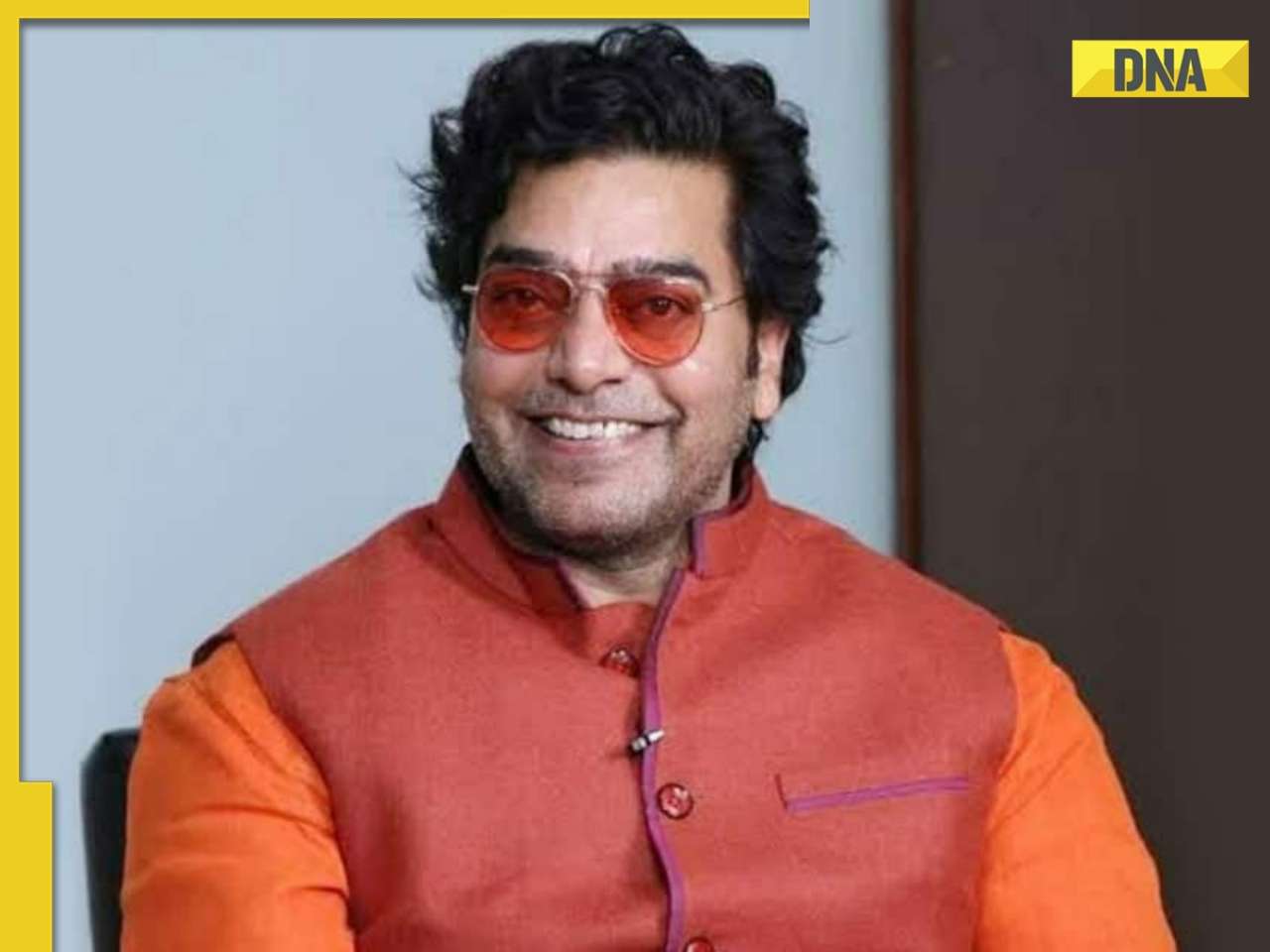
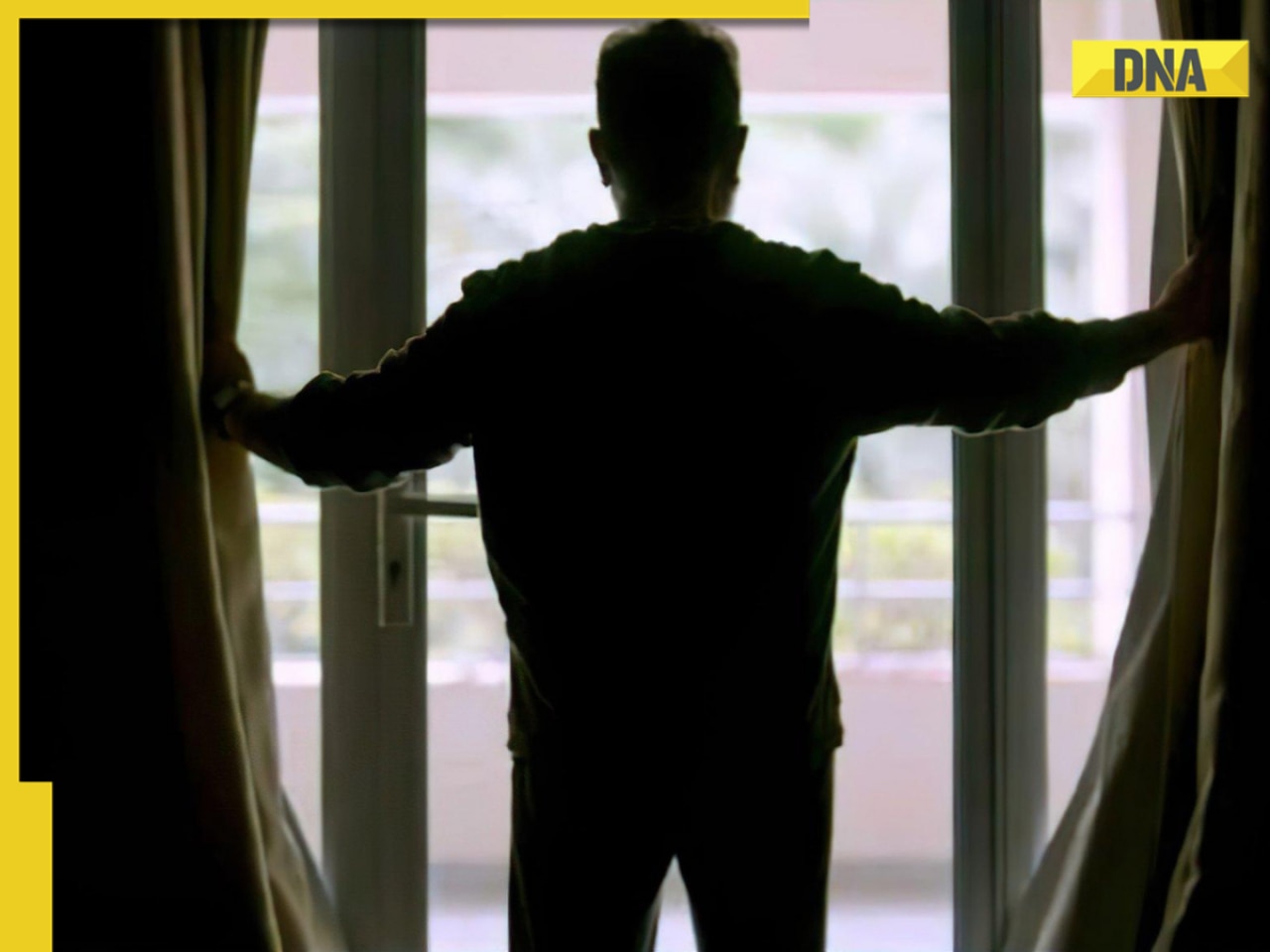
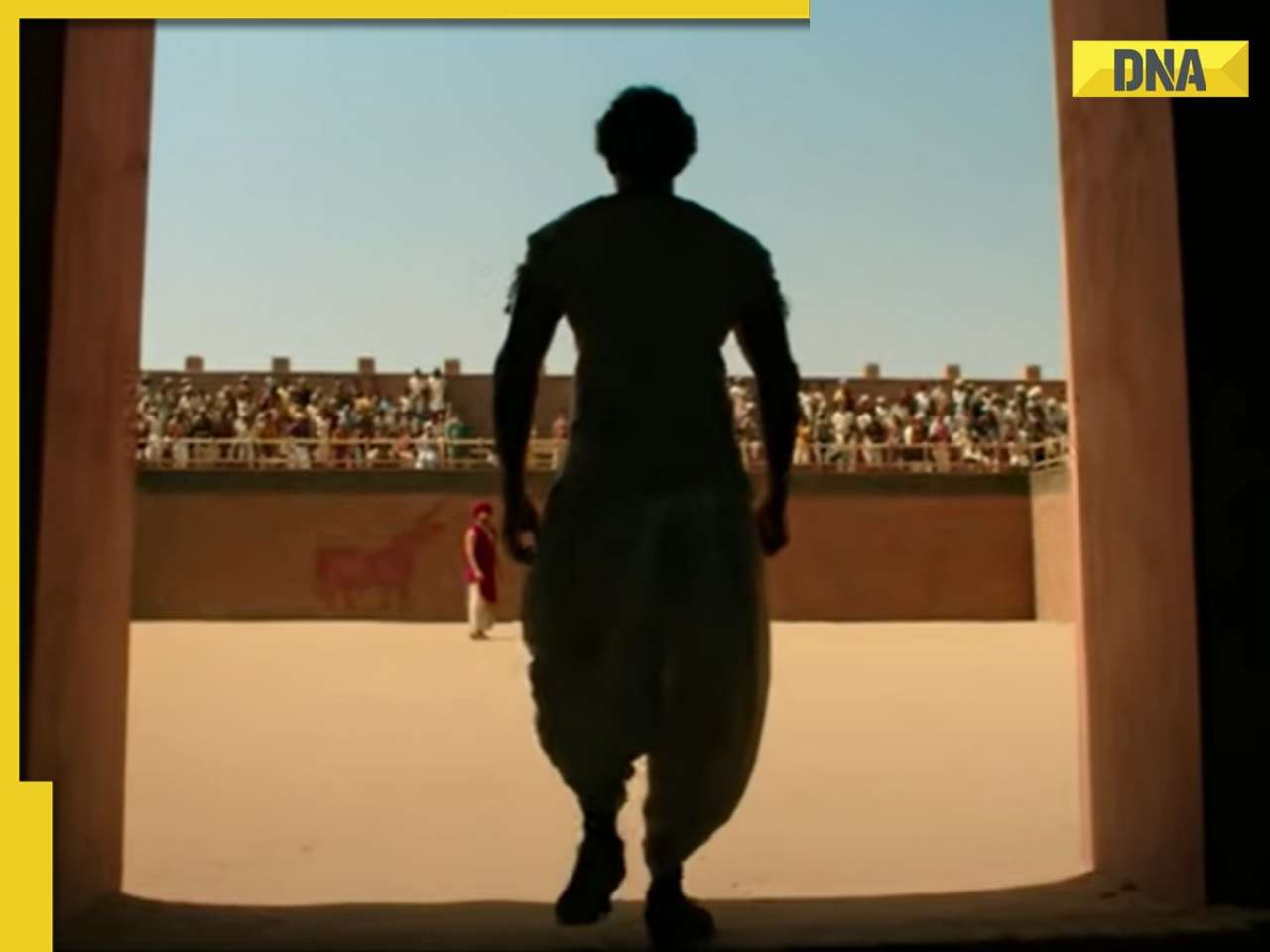




















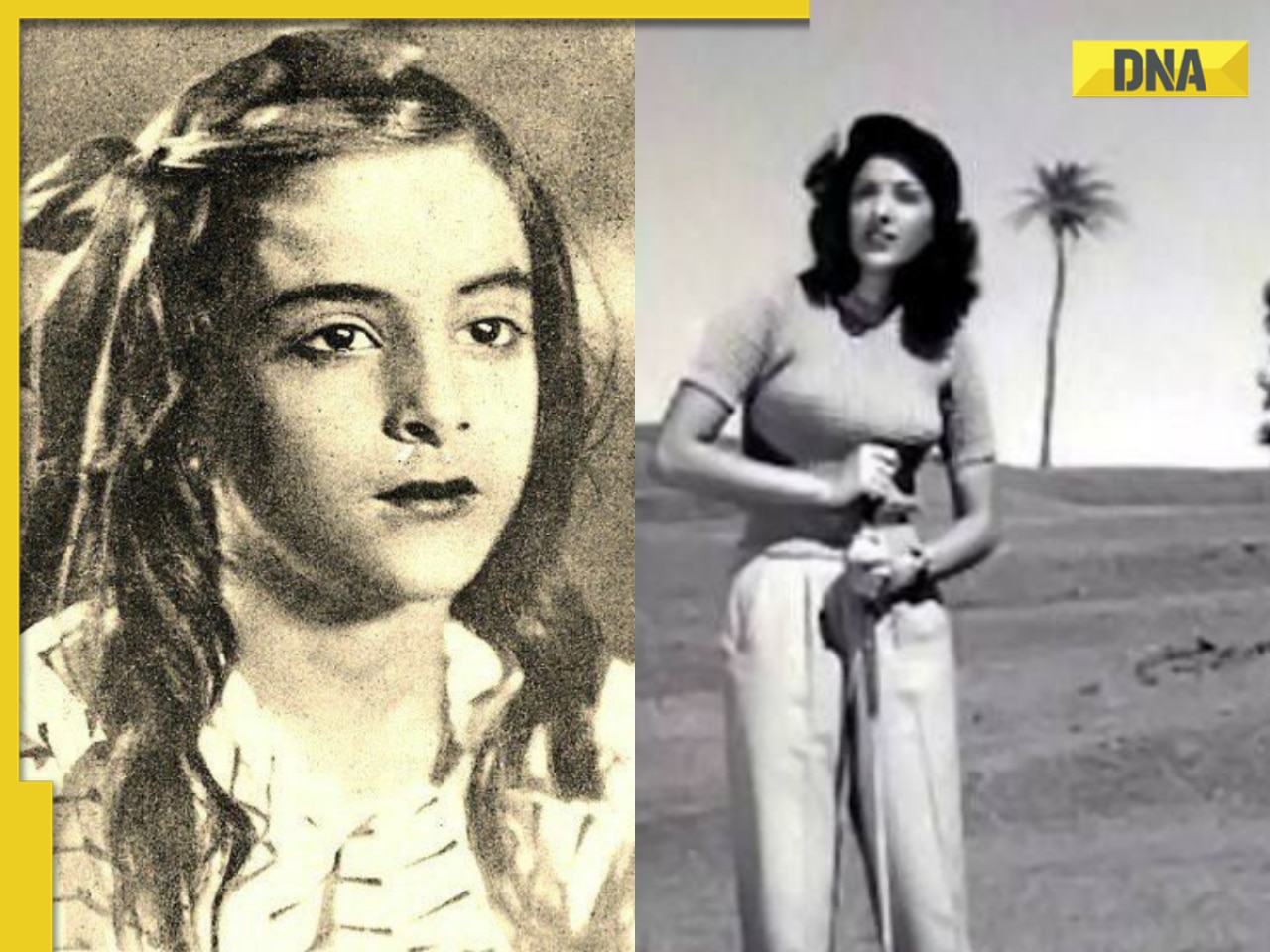

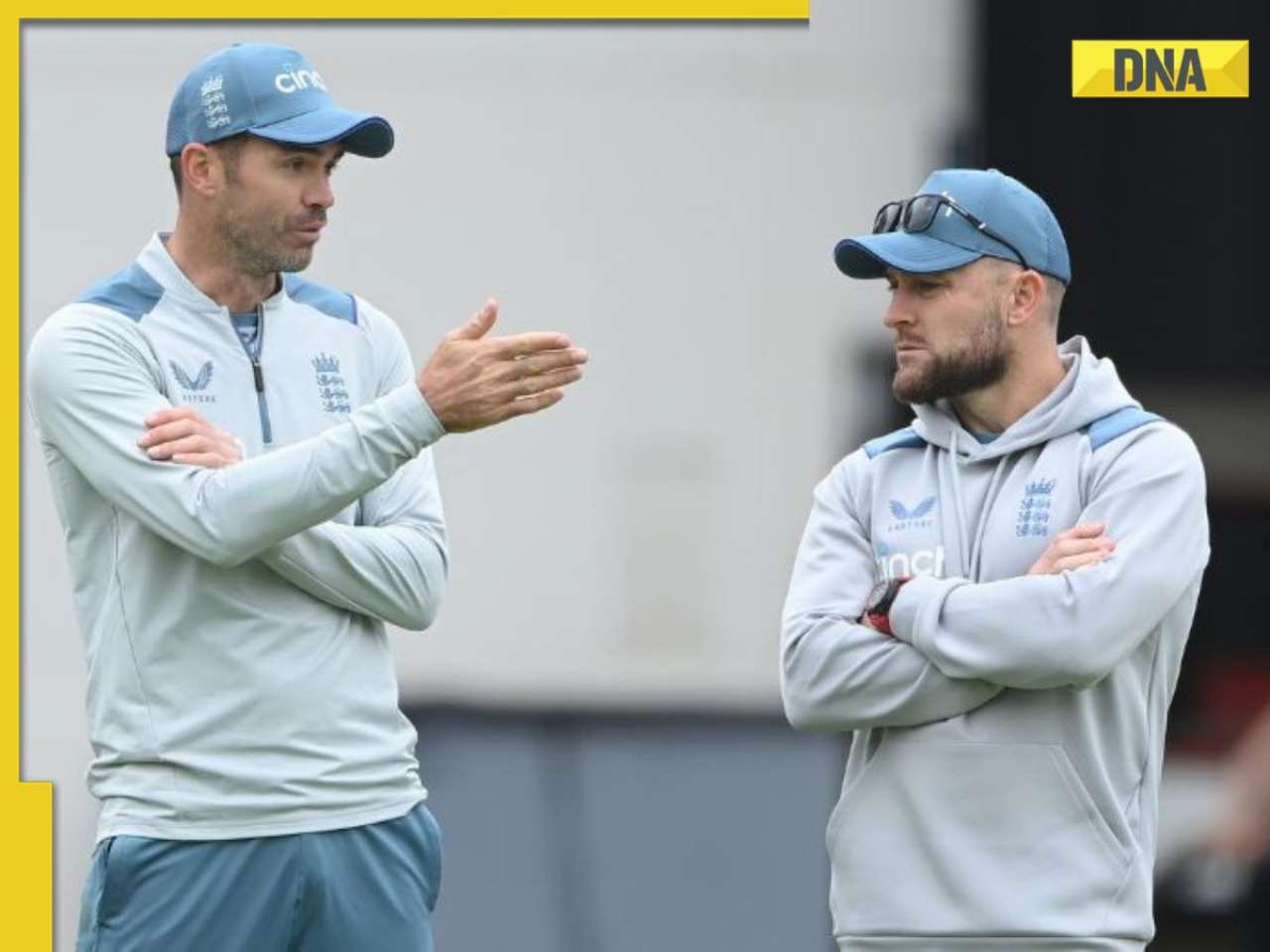
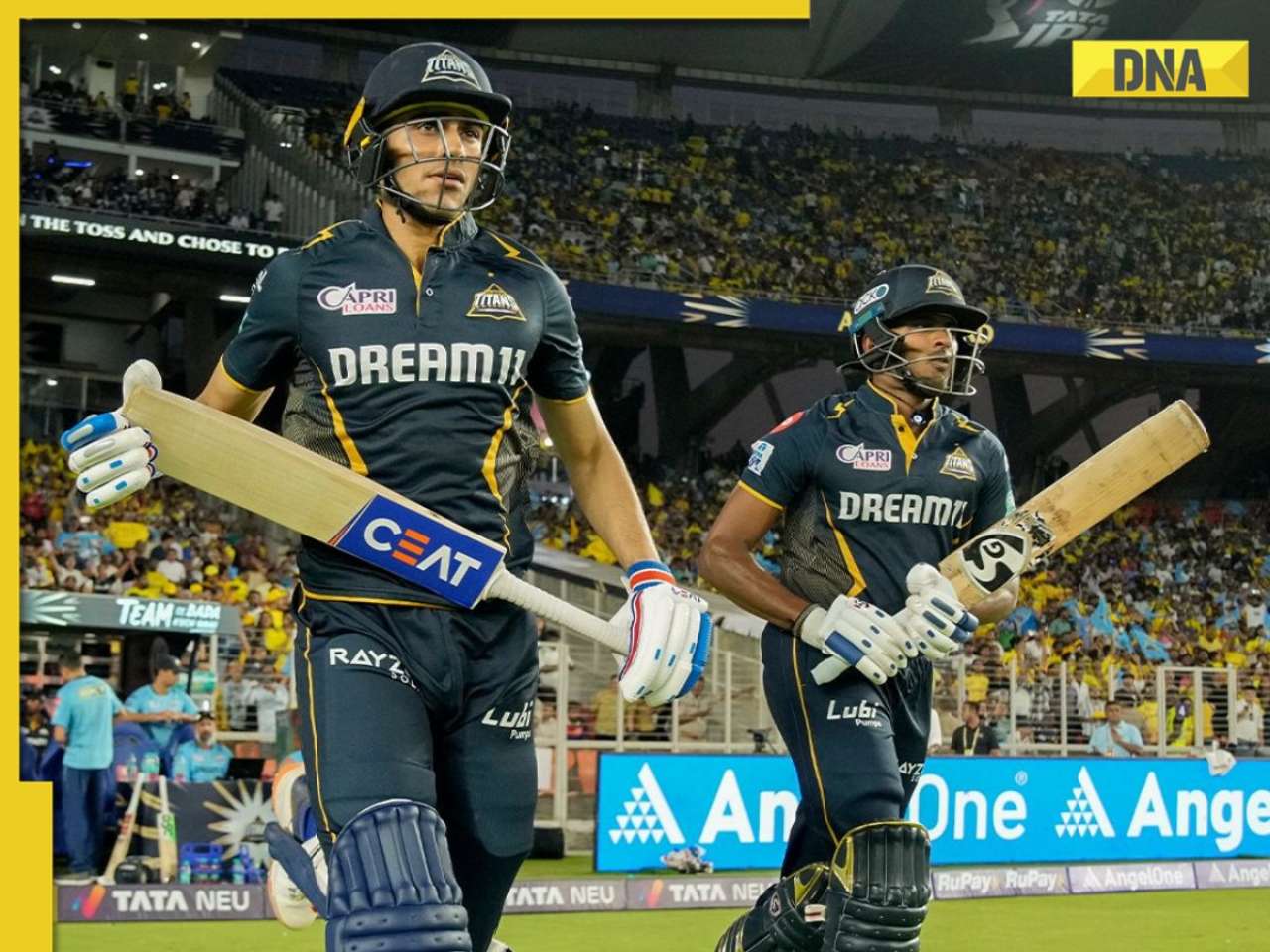
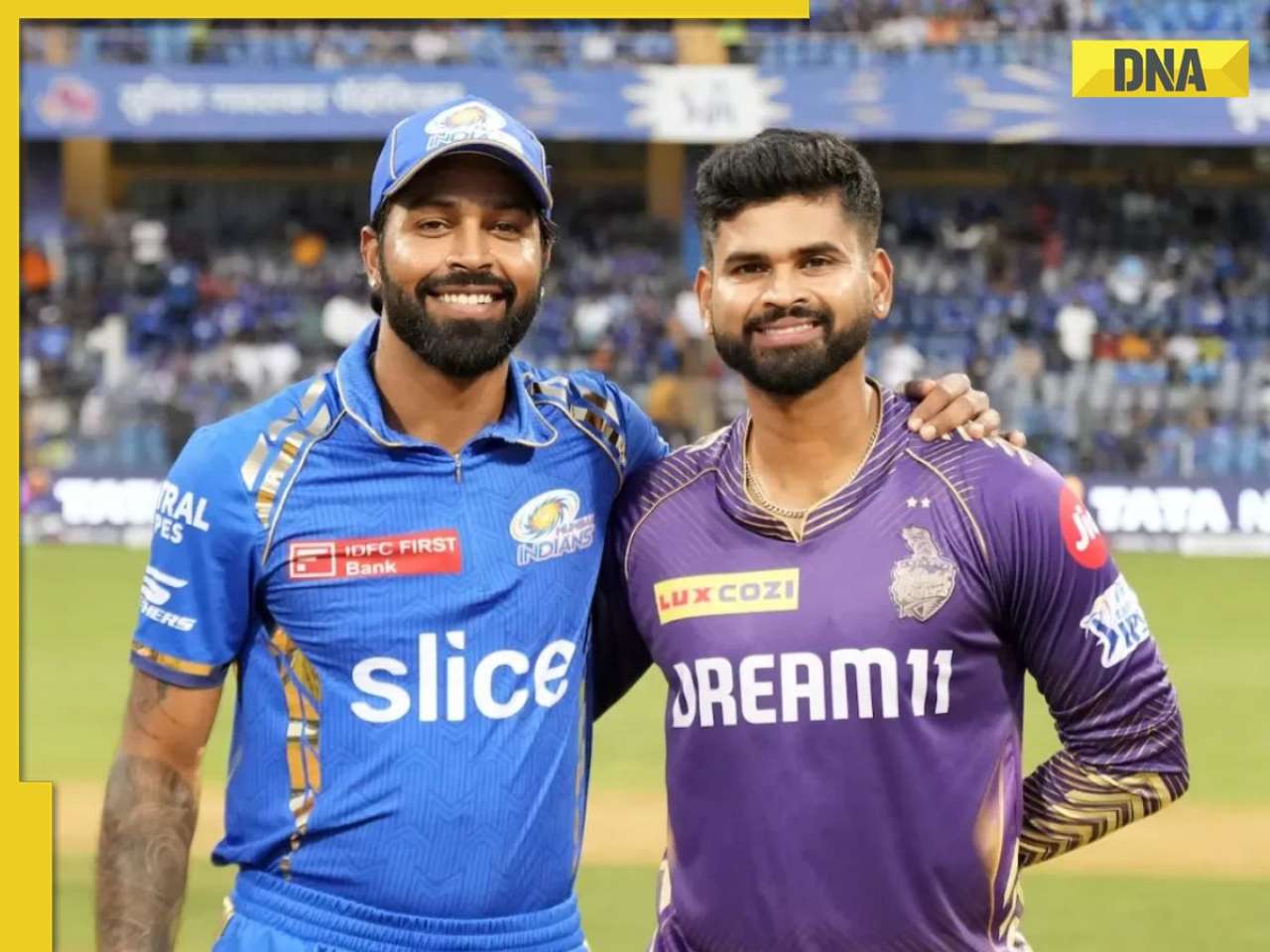
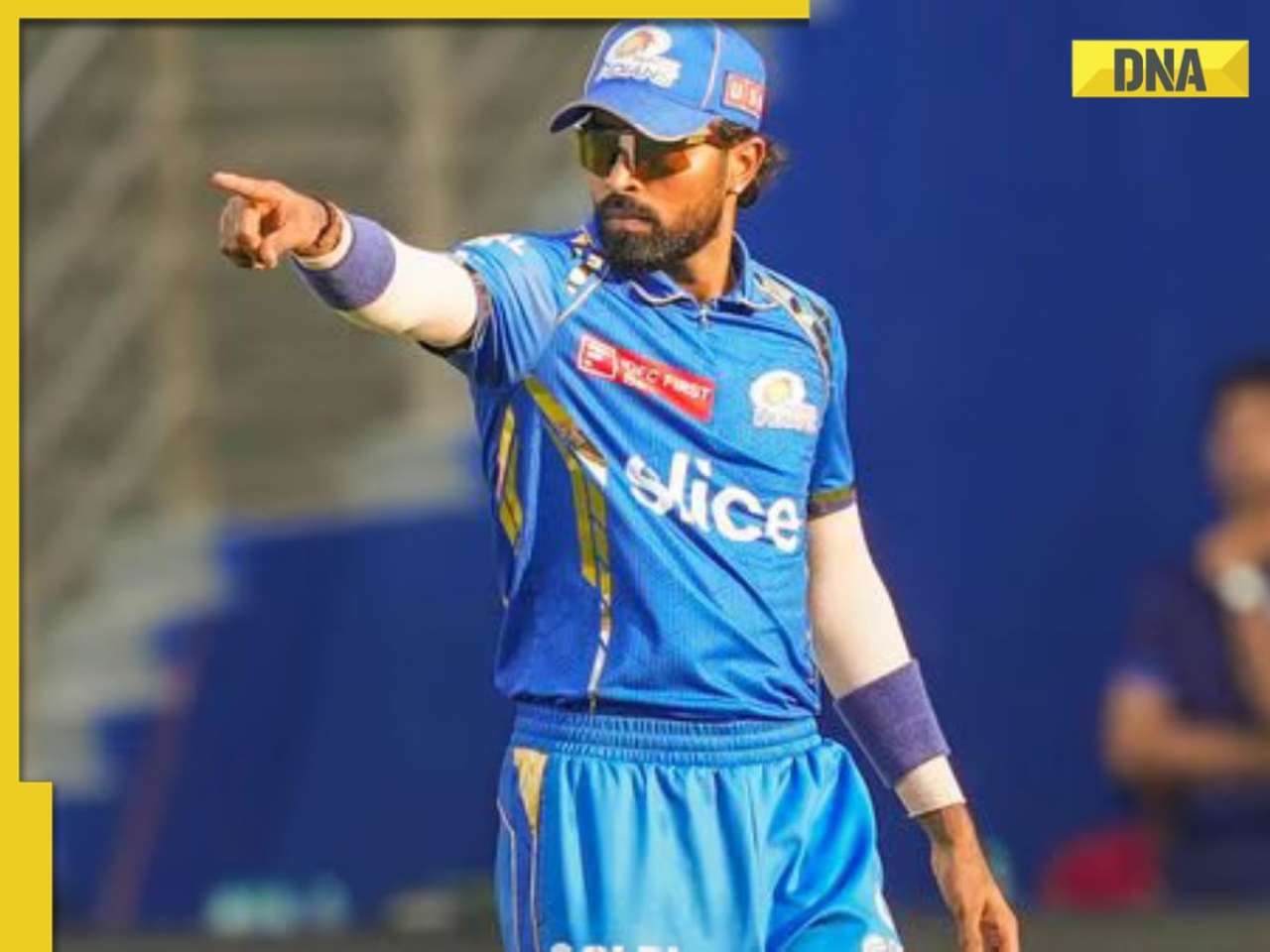
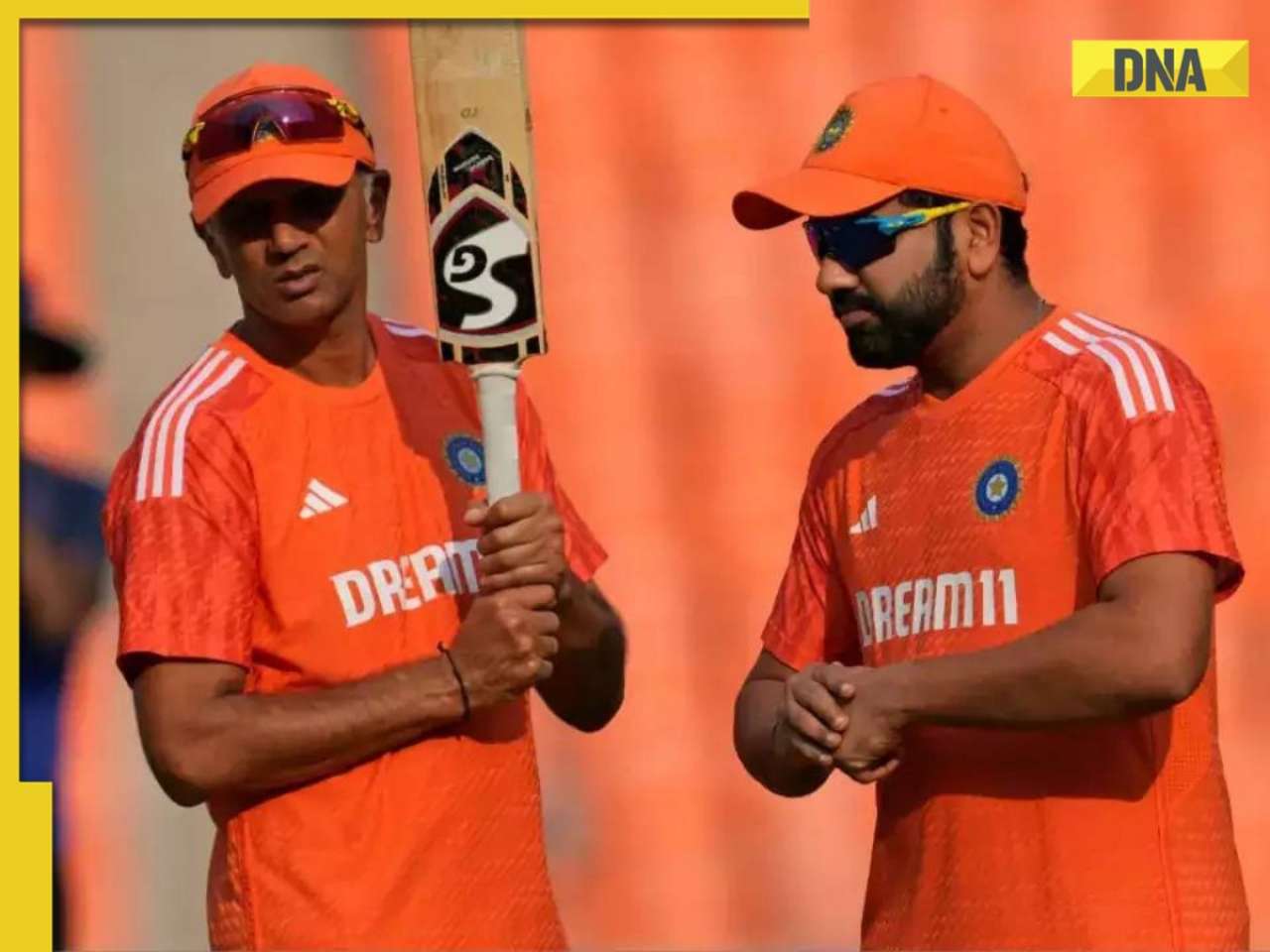


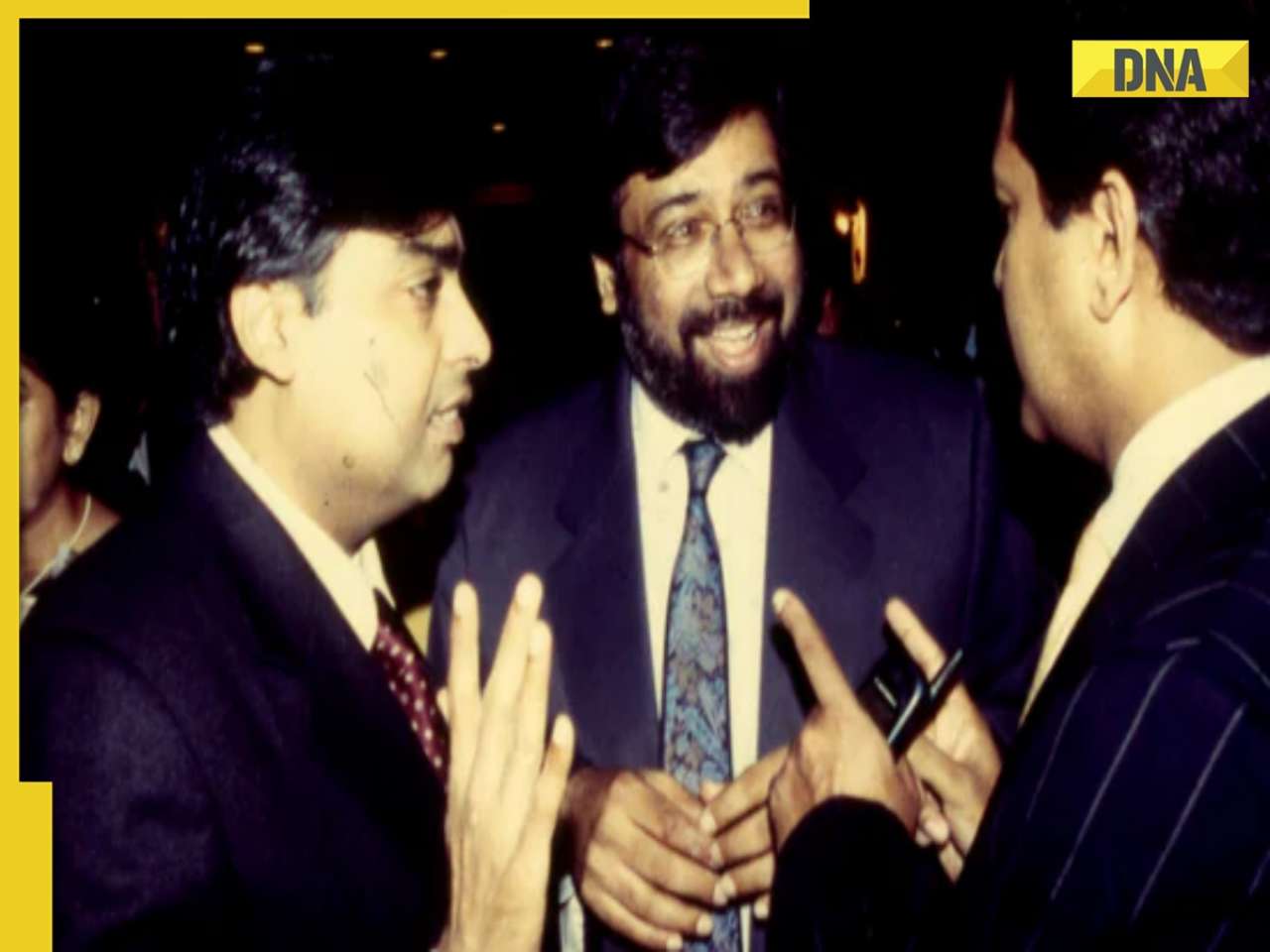

)


















)
)
)
)
)
)